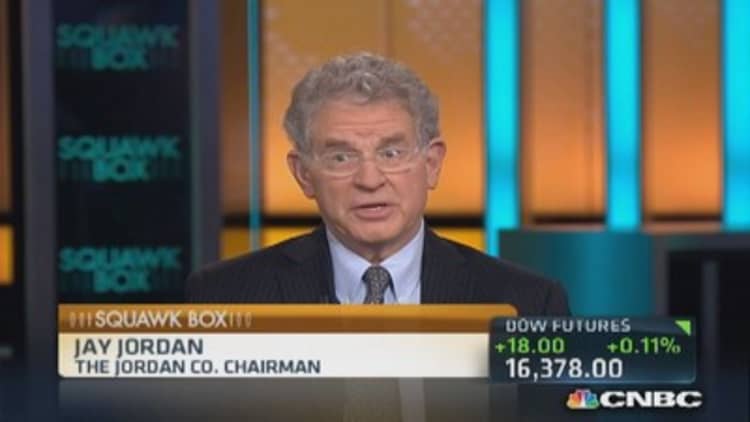
It looks like interest rates are going to remain low regardless of what the Federal Reserve does, and that's why Wharton School Professor of Finance Jeremy Siegel said he's sticking to his forecast of Dow 18,000.
"Everyone expected the 10-year [Treasury yield] to be 3.5 percent by now on its way to 4 percent. It's closer to 2.5 percent," Siegel said on CNBC's "Squawk Box" Wednesday. He admitted he was one of those calling for higher rates in the bond market.
"Now I think we're going to have low interest rates on that long-term [bond] for quite a while now no matter what [Fed Chair] Janet Yellen says," Siegel said—predicting that there's "still upside" in the stock market under this scenario.
Stocks and bond prices can both track higher for different reasons in this current environment, he explained, because older investors and pensions seek the traditional-safety of fixed income, while younger investors snap up stocks, which are viewed as riskier.
"The baby boomers, which still control most of the wealth, [are] getting to 65 and saying, 'Yeah, stock prices may be a better deal, but I've got to be conservative.' That push on to bonds is going to keep a lid on their rates," Siegel explained.
At the same time that "there's huge demand for bonds," he continued, "the deficit right now of the government ... is less than the historical average. There aren't that many bonds being pumped into the market."

By contrast, private equity manager Jay Jordan told CNBC that he sold all his stocks about six months ago. "I was very nervous about what was going on globally." The Jordan Co. has about $5 billion of assets under management.
He admitted he missed a big upturn in the stock market, but chose to reinvest in some of his businesses instead.
"The Fed should go negative on interest rates and drive GDP up because earnings are not tracking with the stock market," Jordan proposed.
"How do you stimulate earnings? You put more liquidity in the market," he said. If the Fed forced the banks to lend their $3 trillion of excess reserves, that would stimulate the economy, he concluded.
"That's not a crazy proposal," Siegel said. "There's no incentive [right now] for banks to lend it out in this environment."
—By CNBC's Matthew J. Belvedere


